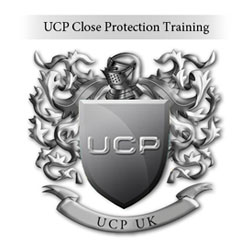Tom Huntley’s story

This article was written by a friend and former colleague, Tom Huntley, who left policing at the rank of Inspector last year to set up as an Independent Security Consultant where he could combine his knowledge, skills, experience and academic achievements to do something different.
Tom explains that it wasn’t and still isn’t plain sailing, but the benefits far outweigh the downsides as you will discover as you read on. Tom leaves us with some excellent top tips to think about before making that big leap of faith and self-belief to enter into the unknown.
My Journey
It was never my intention to be a Police Officer. I some how fell into ‘the Job’ through a bizarre set of circumstances. At 16 years old, with little academic qualifications to support me, I knew that University was neither something that appealed, nor in truth an option. I had always harboured a desire to join the Armed Forces, essentially both as a way of testing myself and as a way of satisfying a deep-seated sense of adventure. Having spent a year digging in holes in roads in the rain to repair pipes, I gripped my passport and the little money I had and set of on the ‘Sea-Cat’ to the South of France, from where I would join the French Foreign Legion.
Returning home some years later, having satisfied the sense of adventure and getting more than I bargained for, I really had no clue in which direction I should take my life. NVQs where the buzz in education at the time, so I signed up for a Security Management course, after all, security was a natural role after the forces, or so I thought. My course lecturer was a retired a Superintendent and on conclusion of the course he helped me apply for a position in the Ministry of Defence Guard Service (MGS). The training for the guards took place at a remote training base in Wethersfield, Essex, which also happened to be the HQ of the Ministry of Defence Police (MDP), who at that time trained the MGS in areas such as Use of Force and Legislation. One of the training Sergeants took me to one side near the end of the training course and suggested I should apply for the police service. I gently explained that the police didn’t appeal to me and that I hadn’t yet decided on the direction I wanted my life to take. He told me they would pay me a significantly higher salary. I applied that night!
I spent the next 18 years within the ranks of the Ministry of Defence Police and thoroughly enjoyed most of it. I was extremely fortunate to have had a background that made the role of Authorised Firearms Officer a natural progression. On conclusion of my probation I almost immediately started my CID programme and from becoming a fully-fledged Detective I moved, on promotion, to the Fraud Squad from where I worked in partnership with the Serious Fraud Office. Gaining promotion to Inspector I enjoyed roles with the Operational Support Unit, Head of Operational Doctrine and as a Staff Officer. I even managed to perform the role of Contingent Commander in Afghanistan. In all of these roles I worked alongside fantastic people and really did learn something new every day. And that is one of the greatest things about policing. I don’t know many other jobs that will allow you exposure to such diverse roles in such a short space of time.
Whilst at the Fraud Squad I had a gained a Post Graduate Certificate in Fraud Management and this had whet my appetite for further education. Having left school with poor exam results I wanted to test myself academically and see how well I could do, and so, with no small amount of trepidation, I applied to take a master’s degree in Leadership through Cranfield University. The process of gaining this qualification took me on a journey into understanding why ‘leaders’ make the decisions they make, and ‘followers’ choose to follow (or not). I had been a Cadre Tactical Firearms Commander for many years and decision making under stress had been an area that fascinated me, so I focused my dissertation on what qualities police officers sought from their immediate leaders during routine business when compared with commanding critical incidents. I found the results truly interesting and it propelled me further on the journey to understand Critical Incident Leadership and Risk Management.
Like many I felt that by around 2015 the job had changed significantly and that the ‘do more with less’ mantra was making the tasks impossible to deliver. I had also come to the realisation that my personal circumstances had made another move highly undesirable (I was serving in a national force) and that promotion would mean a move. Treading water in the same rank at the same location would have meant losing the very things I had grown to love about the service; the variety and excitement of facing new challenges, and so, now in my forties, I concluded that it was time to look for something new.
Using my police training my ‘go to’ was the National Decision Model and so I span the wheel. I had the luxury of time in developing information and intelligence and establishing what is out there and what others, who had jumped before me, had done. This helped me understand the risks, as well as consider my ‘tactical options’. I found that talking to others who had set out on second careers was extremely valuable: why make your own mistakes when you can learn from others? The police service is a strong family and in my experience those who have left will go out of their way to assist those who are thinking of leaving. The ‘caring cop’ side of you doesn’t leave when you leave.
I also sat down with my partner and wrote out a list of pros and cons. There are two important points to make here. Firstly, it is unlikely that your decision will only affect you, so include others in your discussions. Secondly, not all pros or cons are equal. For example, I kept returning to the major con of leaving; as a police officer I had a guaranteed salary! However, with careful consideration and planning I couldn’t escape the clear message that it was time to do something else: but what? Someone once said to me that it is easy to do what you want. It is figuring out what you want to do that is the hard bit!
Like many cops I have a desire to help and protect people that is wired in to me. I wanted to keep using the skills I had gained as a police officer and use them ‘for good’. Although the security industry appealed, I didn’t want to work in guarding, and nor did I want to grab another assault rifle and drive through dusty plains. I did want to use my knowledge gained through academia and my training and experience from service. The difficult thing was that although I wanted to leave the police, I still wanted a Silver Command type role: I wanted to plan operations and make key decisions. That was the bit of ‘the Job’ I loved, and I wanted to keep doing it.
So far so good. However, once I had made the decision things slowed down. In fact, I applied for around 50 jobs, and attended several interviews, before I gained success. Don’t let anybody tell you it’s an easy market out there. The first job I landed was as the Director of Physical Security for a major Travel Risk Management company. It was a fantastic role that opened my eyes to an important area of the security industry and where I feel I was able to truly contribute. The skills, training, education and experience I had gained with the police service were invaluable. Last year (2018) I decided to set out alone as an Independent Security Consultant. It would be easy to say I’ve never looked back but that wouldn’t be true. I look back on everything I’ve done to get here nearly every day. I’ve worked with some truly heroic people and dealt with some incidents that will never leave me, and overall, it’s been a fantastic journey. When I consider it all as progressive steps it makes sense.
This article was supplied by Rob of “Leaving the Police”




